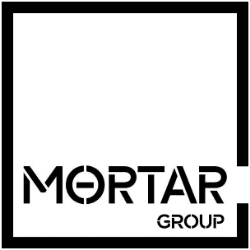What is a Self Directed IRA?
A self-directed IRA is a type of traditional or Roth IRA. The difference is the type of assets you can own in the account.
It allows you to save for retirement with assets that are traditionally off-limits for standard IRAs, including alternative investments such as precious metals, real estate assets and cryptocurrencies. With regular IRAs, your investment options are limited to approved securities like stocks, bonds, exchange-traded funds (ETFs) and mutual funds.
How Does a Self-Directed IRA Work?
To use a self-directed IRA to buy an alternative investment or real estate, you need to move money from your self-directed IRA to a Custodian. Custodian companies like Entrust or Millennium Trust will review documents related to the investment to ensure that it meets the terms outlined in the IRS regulations governing Self-Directed IRAs, however they do not provide investment or fiduciary advice.
Varying on the type of self-directed IRA you have, you’d would either ask the Custodian to disburse the funds or you’d wire the funds yourself from a linked checking account.
What Assets Can You Own in a Self-Directed IRA?
Some of the non-traditional assets you can own in a self-directed IRA:
• Cryptocurrency, like Bitcoin or Ethereum.
• Precious metals, including gold and silver
• Real estate
• Startups
• Foreign currency
When it Comes to Real Estate
With a truly self-directed IRA, you aren’t limited to stocks, bonds, or mutual funds. You can purchase real estate investments ranging from residential and commercial properties to raw land, mobile homes, and more as alternative investments for your IRA. For an IRA owner, this allows greater account diversification that gives additional protection from the unpredictable stock market or inflationary worries. Your real estate investment then grows tax-free (Roth IRA) or tax-deferred (Traditional IRA), depending on the account type. Another great advantage besides diversifying your retirement portfolio is that you are not limited to a specific geographical area. You can purchase real estate in almost any area.
Self-Directed IRA Benefits
• Potential for Higher Returns
• Increased Diversification
• Larger pool of potential investments
• Generational Estate Planning
Self-Directed IRA Disadvantages and Risks
• Takes more time to review the options
• More Limited Protections
• Finding a Trustworthy third-party
• Strict IRS guidelines to follow
Bottom Line:
It’s an opportunity to maximize tax deferral or tax-free growth.
If you’re considering real estate or alternative investments like this, always speak to a financial advisor or tax professional to help you navigate the decision. At Mortar Group, we have numerous investors that we work with who invest with Self Direct IRA’s, and we are available to share our experiences as well.

